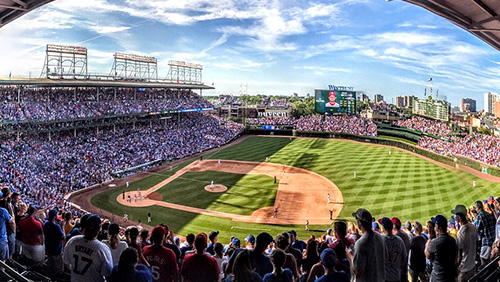According to a report by ESPN, the iconic Wrigley Field, home to the Chicago Cubs, in Chicago, Illinois could be getting its own sportsbook. At least, that might be a plan set in motion by the Cubs,  provided they can get approval from Major League Baseball (MLB) for the venue. The sportsbook would see a physical location in the stadium, as well as betting kiosks in strategic places on the perimeter.
provided they can get approval from Major League Baseball (MLB) for the venue. The sportsbook would see a physical location in the stadium, as well as betting kiosks in strategic places on the perimeter.
Sports gambling hasn’t yet been legalized in Illinois, but it most likely won’t be too much longer before the go-ahead is given. A bill drafted by the Senate, Senate Bill 690 (SB 690), has already been approved by legislators and now only needs the signature of Governor J.B. Pritzker to be converted into law. Pritzker will reportedly sign the bill this week.
In preparation for legalization, the Cubs, and other sports organizations in the state, have been getting ready to launch sportsbooks. However, the Cubs will only admit to being in early discussions about the possibility without acknowledging that it has official plans in place.
Even if the Cubs, or any other MLB franchise in the country, wanted to put a sportsbook at its stadium, there is still one last hurdle to jump. The league has to agree to allow the teams to offer sports gambling, and it has yet to do so. An MLB spokesperson told ESPN, “We will work with our clubs to explore the opportunities presented by the rapidly evolving sports betting landscape in a socially responsible manner.”
However, it’s a guarantee that, if it does, it will want to take a piece of the action. It said last October that it deserves an “integrity fee” from all wagers and, if it can’t get it from the states, it will certainly get it from the sports gambling operations. The MLB has already proven that it isn’t above extortion to try and get its way.
Sports gambling continues to spread across the US and will eventually permeate every sporting activity to some degree. If the previous reports are correct, it could mean up to – or more than $150 billion will go from illegal offshore gambling operators to states in the country, giving them stronger independent governments and greater autonomy.